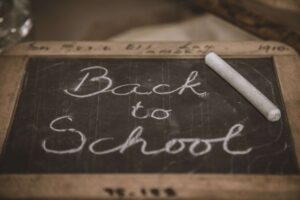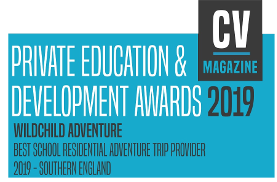Residential trips to benefit learning
7 ways to use your residential trip back in the classroom
We often put all our efforts into preparing for a residential school trip, but what about when it’s all over? How can you use it when you’ve returned to school?
Residential trips take a lot of organising. But often we see them tacked onto the curriculum rather than helping deliver it. It’s a waste not to make the most out of the experience.
We’ve got seven ideas you’ll love to make your residential trip the start rather than the end of classroom learning.
1: Use your residential trip photos as a lesson resource
We bet you have a few hundred wonderful photos taken during your residential trip. Don’t just stick them in an album, turn them into a teaching resource.
Activities you did on your residential trip will fit into so many areas of the curriculum. Bring learning to life by showing them reminders of personal experiences they can apply to the lesson.
Residential school trip photos are especially useful for PSHE lessons. You’ll find plenty of examples of the skills you want your students to develop.
You’ll see evidence of:
- Independence
- Resilience
- Problem solving
- Communication
- Team working
Use your residential trip photos to prompt circle time discussions or help solve conflicts between friends. A visual image is the perfect tool for helping them communicate effectively.
2: Share the experience of your residential trip
Your class will buzz wanting to share everything they’ve experienced on their residential trip. What a great time to build their presentation skills by giving them something they really want to talk about.
There are countless ways for them to share their residential trip adventures with the rest of the school. These are a few of our favourites:
- Plan an assembly for the other classes
- Create a talk for the year group below to prepare them for next year
- Write a report for the school newspaper
- Create a classroom wall display
- Produce a class book
- Write blog posts
- Create artwork inspired by their trip
- Record videos to share on the school website
- Write a thank you letter and send it to the trip provider
- Produce brief articles to share on school social media accounts.
Or why not give them the freedom to choose their own format? Put your students into small groups and let them plan their own ideas. You’ll be amazed by what they create.
3: Practise the skills they’ve learnt
Think about the activities you enjoyed on your residential trip. What made them effective? Could you use these strategies in your classroom?
Use your residential trip to gather new ideas for delivering learning and try them with your class. It’s a great bit of professional development (CPD).
You can replicate plenty of activities from a residential trip back at school. Or why not take it further by starting a club? School residential trips can only offer a taster experience. This could be the chance to develop their interest further.
4: Use your residential trip as inspiration for writing
Even children who hate writing will be interested when it’s a personal experience. Your residential trip offers lots of ways to make writing tasks have meaning and purpose.
- Factual writing: Create fact files and non-chronological reports about an element of their trip
- Creative writing: Use the trip as a stimulus for poetry, setting descriptions, and story writing
Children can’t write about things they’ve never imagined. Your residential trip will offer them tonnes of inspiration they won’t find sat in the classroom. Imagine stories based around your kayaking adventure, or a setting description from the perspective of being on the high ropes!
5: Link your residential trip to the curriculum
No residential trip needs to stand in isolation. It’s more than just a fun adventure. Put your residential trip at the centre of classroom learning.
Use your residential trip to launch of a new topic or area of learning. For example, at Wildchild we teach children campfire cooking. What a fantastic way to start learning about Stone Age life. Use the residential trip as a stimulus for a range of different subjects.
Look at your long-term planning documents to see where your residential trip can support different areas of the curriculum. You’ll be surprised at how many meaningful links you’ll find.
6: Talk about the experience
Children do a lot of growing up on their first residential trips away from home. There’s a lot for them to remember and reflect on. Plan times to talk about their experience.
Look at photographs, talk, and laugh about their favourite parts. Reminisce about their adventure. It’s a chance for them to process the changes they’re going through.
Residential school trips offer fantastic support for mental health. It’s the chance to disconnect from the world and unplug those screens. Discuss the benefits of this with them and decide how you can bring this feeling into your classroom.
7: Evaluate the residential trip
Don’t waste the chance to find out the children’s points of view. This is your opportunity to learn about their opinions and use it to improve next year.
Ask them:
- What did they enjoy most?
- Were there any problems?
- What surprised them?
- What would they change or do more of next time?
In summary
Residential trips are a fantastic, and often under-used, resource for the classroom. You can make the most of the experience by thinking about ways to use it back at school.
Residential trips shouldn’t just be a celebration. Use them to stimulate learning and launch new topics. You’ll be amazed by how many ways you can link it to different curriculum areas.
And don’t forget to harness their excitement to share their adventures. Get them writing, talking, and showing everyone what they’ve learnt. After all, they’ve had a fantastic time away.
To find out more about Wildchild residential school trips click here
Recent Posts
- Why you should be insisting on LOtC for your school residential trips
- The impact of Nature deficit disorder and the preventative role schools can play
- Residential trips for secondary schools to ease transition
- Building character through primary school trips
- Six reasons why more schools are choosing UK school trips (spoiler alert: it’s not because of Covid!)
- School trips after the pandemic
- 5 winter outdoor learning activities for schools
- 5 ways to get more from your School Bushcraft Trip
- Residential trips to benefit learning
- Perfect Primary School Trip Planning
Blog home






